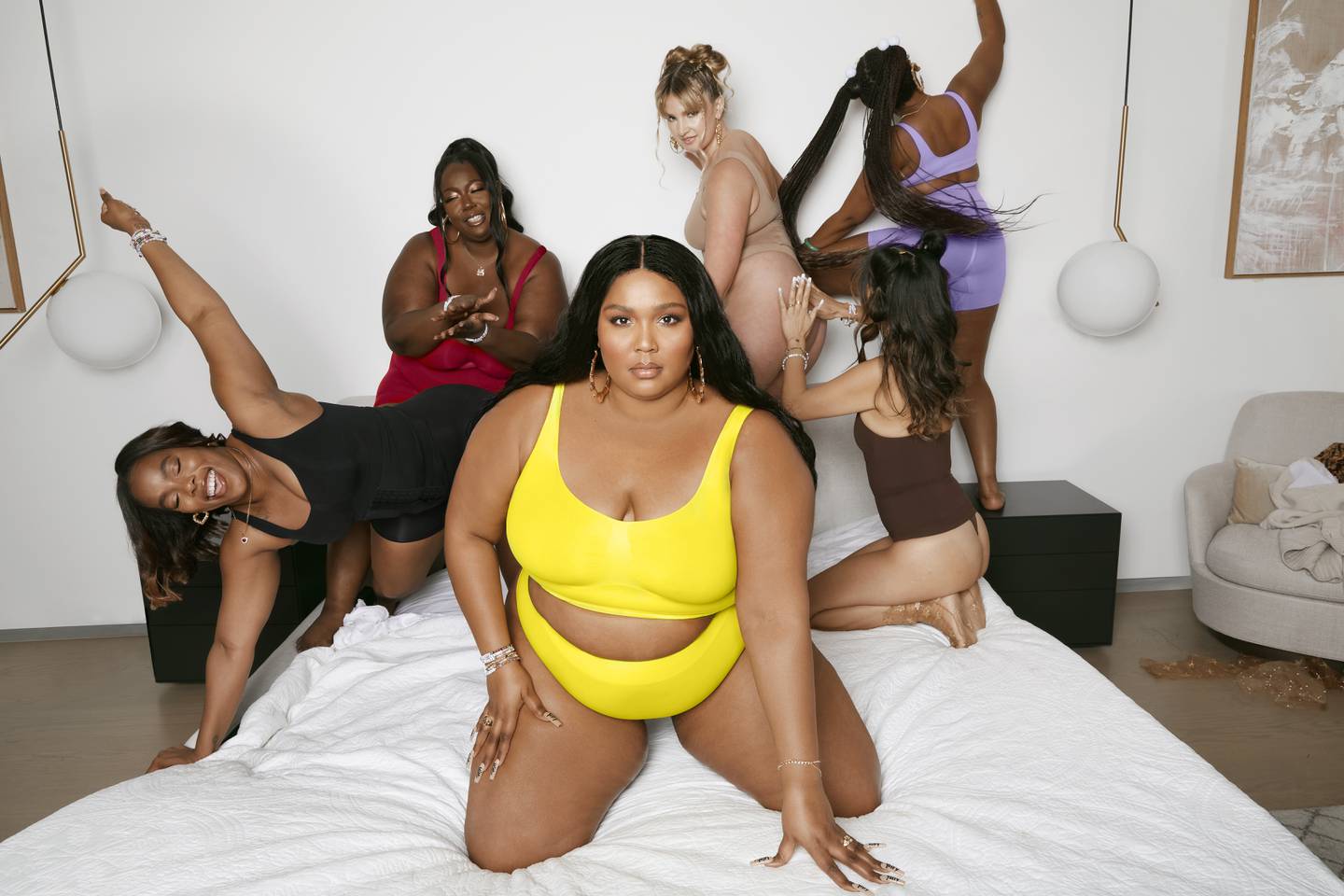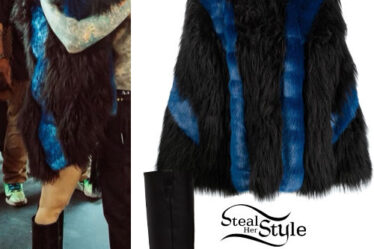
Another stitch is added to the fabric of the global shapewear market.
American musician Lizzo, née Melissa Jefferson, is launching a brand with Fabletics called Yitty which will sell shapewear, loungewear and athleisure. At launch, the line will include three types of products ranging in compression level.
Jefferson, who is the brand’s founder and chief executive, said that what distinguishes her foray into shapewear is that the products are designed to be the outfits themselves, rather than just as items concealed beneath another garment.
“A reason why I wanted to go into [shapewear] so badly was because I’ve had an experience with shapewear my whole life,” she told BoF. “It was important to me that I did that without being in pain and I did that without being ashamed of my body.”
The launch is the latest of a long list of celebrity-backed fashion and beauty brands across categories. But having a celebrity founder — even one who boasts Grammy Awards, an Amazon television series and more than 30 million social media followers — does not guarantee success. Yitty, with steering from the Fabletics team, must consider how they fit into the broader market and create a brand that reflects its founder as much as its customers’ needs.
“Alignment is one of the key areas that they really need to navigate upfront,” said Nora Kleinewillinghoefer, principal at strategy and management consulting firm Kearney.
Stretching the Shapewear Market
Skims, Kim Kardashian and Jens Grede’s “solutionwear” brand, helped pioneer a wave of disruption in the shapewear market and is now valued at more than $3 billion. The Skims launch, in 2019, happened just after Jefferson and the team at Fabletics decided to pursue Yitty, Jefferson said. Skims’ success, she said, “showed that shapewear is a burgeoning category in apparel and it was confirmation that I was right, that we do need to make a change in this category.”
While Skims helped reinvigorate the category and encouraged existing players to revamp their assortment and branding — the department store staple Jockey now refers to a line of their shapewear as “Skimmies,” after all — there’s still room for growth in the multi-billion dollar global shapewear market.
Table stakes for new entrants include colours to complement a range of skin tones and extended size ranges to accommodate various body types. Brands cannot simply scale up sizes without accounting for differences in body types, and being able to successfully extend sizing offers brands a way to distinguish themselves from the pack, Kleinewillinghoefer said. Offering a collection that includes popular styles — bodysuits, bike shorts, and sports bras — is also a must, according to analysis by retail intelligence firm Edited.
Jefferson and her business partner, Fabletics co-founder and CEO Adam Goldenberg, said Yitty checks all of those boxes. Yitty will launch first with three collections: a “lightweight seamless” collection of the shapewear in those popular styles; smoothing mesh styles to be worn as underwear or outerwear; and a handful of lifestyle products like leggings and sweatshirts. The products will be sold in sizes extra small through 6X (Jefferson said that in the larger sizes, the brand was careful to size according to different body types rather than simply by scaling up).
Yitty, unlike Skims and other brands, however, brings to market an assortment of boldly coloured styles — primary reds, blues and yellows alongside kaleidoscope-like patterns of butterfly wings help make up the palette — that are perhaps more trend-driven and subject to shifts in consumer preferences.
Not Just Another Celebrity Collaboration
Fabletics, the largest brand in the portfolio of parent company TechStyle, has a history of working with Hollywood celebrities from the start — the company was founded by Kate Hudson in 2013. (Last year, Fabletics announced Hudson would transition away from being the public face of the brand into a strategic advisory role.)
In 2015, Fabletics became TechStyle Fashion Group to include other properties like Just Fab and Shoe Dazzle. As Fabletics grew, it introduced comedian Kevin Hart into the fold as an investor and face of the brand’s menswear offering and also created a capsule collection with actress Vanessa Hudgens in 2021. TechStyle, for its part, previously owned Rihanna’s Savage X Fenty brand, but in 2019, spun off Savage X Fenty as an independent company and instead financed its Series A round. (Both TechStyle’s Fabletics and Savage X Fenty have separately hired investment banks to explore initial public offerings in the last year, and Goldenberg declined to comment on the topic of a Fabletics IPO.)
Fabletics’ history of celebrity collaborations makes its decision to ink an entirely new brand deal with Jefferson rather than just produce a seasonal capsule collection all the more impactful. Its launch with Lizzo is the brand’s first “sister brand,” Goldenberg said, adding that “we don’t take launching a brand lightly.”
Goldenberg said that Fabletics customers, two million of whom subscribe to the brand’s membership model, have asked for a shapewear collection so often that it was “too big of an opportunity and too exciting of a vision that Lizzo had to just do a capsule [collection].”
Still, fashion businesses with active celebrity founders have grown like supernovas — only to fade more quickly than they appeared. Sometimes, it has more to do with launching in the right category or at the right price point than it does with the right person. Rihanna, for example, is often held up as the pinnacle of a celebrity brand due to the success of Savage X Fenty and Fenty Beauty — but her LVMH-owned Fenty fashion line was shuttered after less than two years.
“There’s a risk in this market … it’s almost gotten to the point where it’s like, ‘Oh, another collab?’” Kearney’s Kleinewillinghoefer said. “It’s about being really thoughtful when you do them to make sure it’s actually value additive, not just another name jumbled together.”



